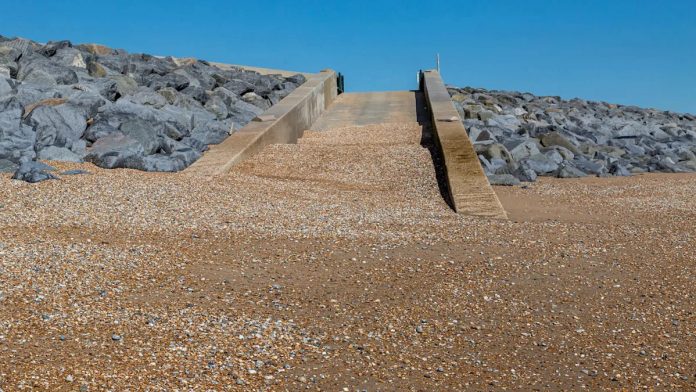A private British utility company has admitted responsibility for a severe recent pollution incident in southern England, according to the Guardian.
What’s happening?
In early November, “millions” of black plastic beads began washing ashore on Camber Sands beach in East Sussex.
On Nov. 8, the Guardian reported that local volunteers scrambled to the shoreline to assist and added that the “scale of the pollution spill is vast.”
Andy Dinsdale of the plastic pollution awareness group Strandliners described it as “the worst pollution event” he’d ever seen.
Two days later, the outlet reported that the source of the massive quantity of plastic beads had been identified and that the utility company Southern Water had taken responsibility for the spill.
The pellets in question are plastic “biobeads,” used in wastewater treatment processes to facilitate the growth of beneficial bacteria.
Southern Water explained, per the Guardian, that the beads were unintentionally released into the ocean after the “failure of a screening filter” and said that it was doing everything in its power to “investigate and resolve the problem.”
Water Minister Emma Hardy commented on the incident.
“I am deeply disappointed about the plastic pollution incident affecting Camber Sands, East Sussex. It is right that Southern Water has taken responsibility,” she said, per the Guardian.
Why is this important?
Like nurdles, biobeads are small pieces of plastic that cause big problems in the ocean and the environment at large. When a large quantity of plastic pellets is accidentally released into the sea, several adverse outcomes can occur.
Microplastics are a massive threat to ecosystems, wildlife, and human health, and biobeads and nurdles break down further in high-salinity environments.
Microplastics have been devastating for marine wildlife in particular, but they’re no good for humans, either. They’ve been detected in every corner of the planet, and exposure to microplastics has been linked with adverse health outcomes, including some cancers.
Plastic waste poses risks before it even becomes microplastics, and locals in East Sussex feared the incident had already harmed local wildlife.
“People in Sussex have reported a number of dead stranded seals and a porpoise in recent days and fear the deaths could be linked to the beads,” the Guardian noted.
What’s being done about it?
“The immediate priority now needs to be addressing any environmental damage and minimizing further impacts,” Hardy said, adding that Britain’s Environment Agency was involved with the ongoing investigation.
An EA spokesperson acknowledged Southern Water’s responsibility.
“This is an active investigation, and we will not hesitate to take robust enforcement action where appropriate,” they said.
Volunteers have stepped in, and participating in local beach cleanups is one way people can pitch in during environmental crises. Donating to ocean conservation efforts is another.
Join our free newsletter for good news and useful tips, and don’t miss this cool list of easy ways to help yourself while helping the planet.







